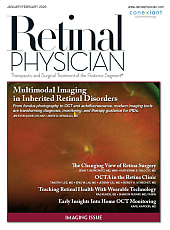Two major studies presented at the 43rd Congress of the European Society of Cataract and Refractive Surgeons (ESCRS), Copenhagen, Denmark, have provided new evidence that cataract surgery on both eyes in the same surgical session can be safe, effective, and practical for most patients.
Traditionally, bilateral cataract surgery is performed sequentially, weeks or months apart, to reduce risks and allow one eye to heal before operating on the second. However, immediate sequential bilateral cataract surgery (ISBCS) is gaining interest as a way to reduce healthcare burden and improve efficiency.
Danish Study
Researchers from Silkeborg Regional Hospital and Aarhus University Hospital, Denmark, surveyed 157 patients who underwent same-day bilateral surgery. Of the 72% who responded, 88% were able to navigate at home independently, 79% could prepare food, and 51% managed to use a mobile phone on the day of surgery. By 24 hours post-op, 62% reported no need for a caregiver.
Lead investigator and ophthalmic nurse, Mia Vestergaard Bendixen, notes: “Our results show that many people can expect to manage well soon after surgery, which may ease anxiety about needing support. For clinicians, these findings support offering same-day cataract surgery, while emphasizing patient education and planning for temporary help if needed.”
UK Study
A second study from Moorfields Eye Hospital, London, UK, analysed over 10,000 bilateral cataract procedures performed between December 2023 and December 2024.
Patients receiving multifocal IOLs with same-day surgery achieved the strongest results, with 85% reaching 20/20 vision or better, and 88% very near achieving target refraction within ±0.5 D. Comparable outcomes were seen across monofocal groups, regardless of surgical timing. Importantly, multifocal ISBCS outcomes remained superior even after adjusting for age, gender, and surgeon experience.
Of the study, Gabriele Gallo Afflitto of Moorfields Eye Hospital remarks: “These findings are encouraging. They suggest that having cataract surgery performed in both eyes on the same day, particularly when combined with multifocal lens implantation, can deliver excellent vision, reduce dependence on glasses, and allow faster recovery.”
Vincenzo Maurino, a consultant ophthalmic surgeon at Moorfields, also adds how the findings highlight system benefits to bilateral surgery: “For patients and hospitals, this approach reduces waiting times, accelerates visual rehabilitation, and lowers costs without compromising outcomes,” he says.
Expert Perspective
“Taken together, these two studies show that cataract surgery to both eyes in one session can be performed safely, with patients recovering well at home and, crucially, achieving visual outcomes as good as or better than when surgery is performed in two steps,” says ESCRS Secretary, Joaquín Fernández. “However, we need to be sure that offering this approach maintains the highest standards of safety and does not increase the risk of surgical or postoperative complications.”








